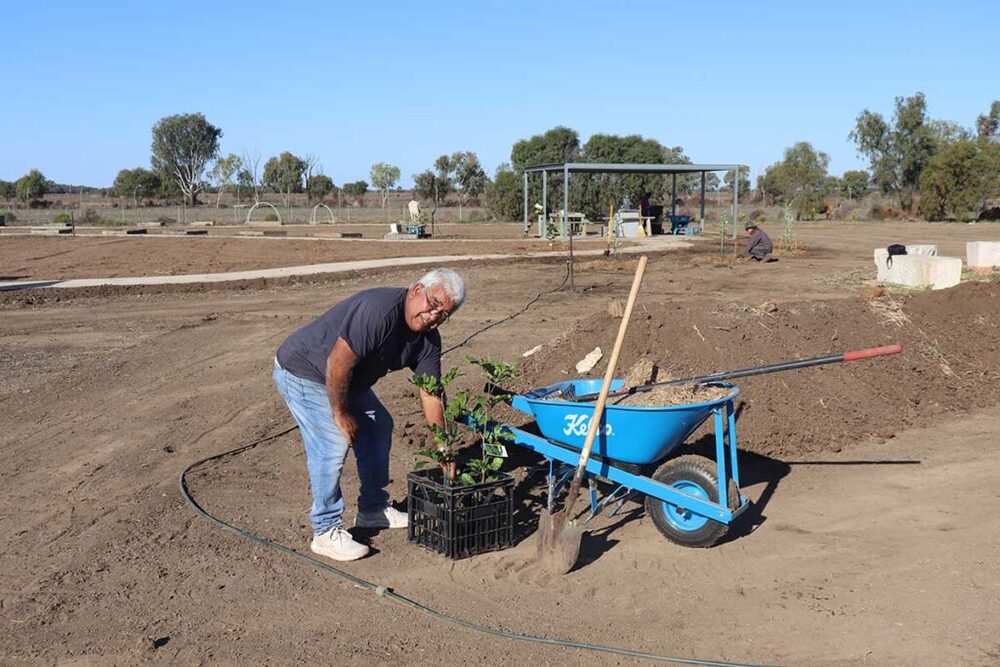State taking feedback on Aboriginal Water Strategy
River McCrossen
08 August 2024, 9:20 PM
 The state's first Aboriginal Water Strategy is expected to finalise in 2025. PHOTO: Wikimedia
The state's first Aboriginal Water Strategy is expected to finalise in 2025. PHOTO: Wikimedia Government officials will hold a series of workshops across the Western Plains to engage and provide opportunity for feedback on NSW's first Aboriginal Water Strategy and Action Plan.
The draft plan, expected to be finalised in 2024-early 2025, aims to strengthen involvement from Aboriginal people in water planning and management, work more closely with them in sharing knowledge and protecting water-related sites, and provide ownership and access to water for cultural and economic purposes.
The draft plan is on public exhibition from 15 July to 25 August.
Staff from the Department of Climate Change, Energy, Environment and Water (DCCEEW) have been visiting towns including Narromine, Walgett, Bourke and Brewarrina to encourage input from local Indigenous community members.
Aboriginal Water Program Director Sharni Jones said the workshops are a chance for Aboriginal people to have their say on policy affecting their livelihoods.
"We're looking at culture, we're looking at health and well-being, caring for country, meaningful engagement, economic benefits, cultural and environmental benefits. So, it's really important to get the strategy right," she said.
"It needs to be co-designed by Aboriginal people and stakeholders in a genuine way.
"We have a number of avenues to let people know the sessions are happening. So, emails that have been distributed, social media posts and just getting on the phone and calling Aboriginal community members that we know.
"I've been doing a number of radio interviews, which also includes Aboriginal and Torres Straight Islander media."

Coonamble-based Phillip Wright attended a local workshop last week.
People of Aboriginal descent can apply for a licence to use up to 10 megalitres of water a year - about four Olympic-sized swimming pools - for cultural purposes.
That can include rehabilitating land, protecting cultural sites, providing a safe swimming area for children or irrigating plants and nurseries to supply food and medicine.
However, the water currently can't be used for financial gain so activities like growing crops or vegetables to sell at local markets are ineligible.
Phillip Wright, a member of the Macquarie-Castlereagh Regional Aboriginal Water Committee who attended a Coonamble workshop on August 1, sees the new strategy as a chance to change that.
"If we start to build up the economic base of our Aboriginal communities, providing jobs, you open more opportunities for people," he said.
He would also like to see funding from the department earmarked to enable water projects like the community garden on King Street being developed by the Coonamble Aboriginal Land Council.
"It's no good having cultural water in the Water Management Act when we haven't got the resources," he said.
"We don't have the money to put a spear in the river.
"That'd cost thousands upon thousands, I'd imagine, to run the water to our community garden. Why hasn't the water department got money for such things?"
Workshops had been slated to take place next week in Brewarrina, Walgett and Bourke, but were been postponed due to "ongoing Sorry Business" according to the NSW government.
Scepticism and consultation fatigue
Brewarrina Local Aboriginal Land Council CEO Urayne Warraweena said she's "a bit sceptical" at the current round of State Government engagement.
"They consult the crap out of you and it confuses people," she said.
"With so many water consults happening at this moment with different government organisations, it's a bit hard to commit or trust or know what's actually going on.
"They roll out the same programs and they roll out the same consults, but to different people. So, it's like 'but which one do we follow?'
"That’s where a lot of people get sceptical."



